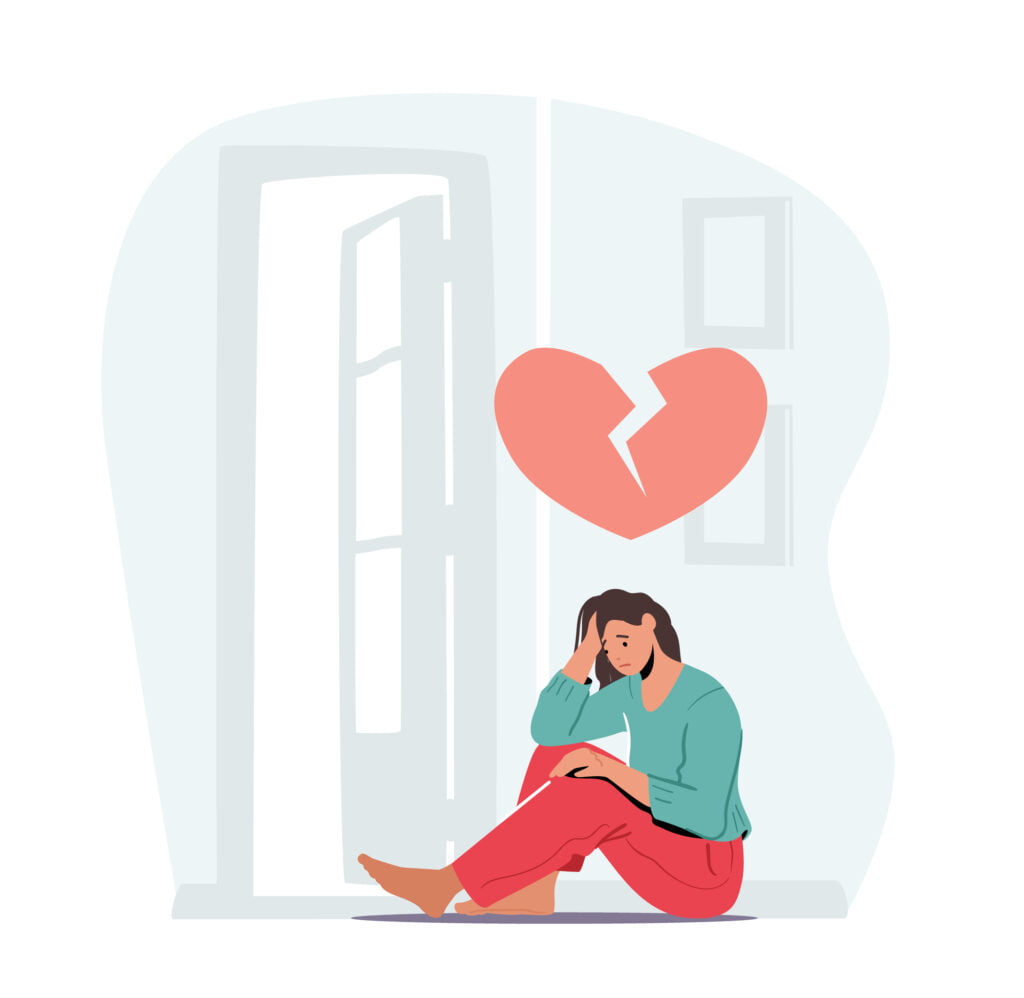The pain of realizing we’ve hurt someone we love can be overwhelming. But amidst the grief and regret, we must also find ways to forgive ourselves and move forward. It can be difficult to confront your own mistakes, but with patience and a few simple tips, it is possible.
Here are 10 of the most effective steps for forgiving yourself after you hurt someone you love:

Why It’s Important to Forgive Yourself After Hurting Someone You Love
Self-forgiveness is a critical step in the healing process after causing harm to another. It’s about acknowledging your actions, taking responsibility, and learning from the experience. Often, individuals who’ve hurt someone else carry a heavy burden of guilt and regret. These feelings, while understandable, can become destructive if they lead to self-punishment and hinder personal growth.
Moreover, forgiving oneself promotes emotional well-being and mental health. It helps to alleviate feelings of guilt, shame, and worthlessness that can lead to depression and anxiety. Self-forgiveness encourages acceptance of our flaws and mistakes, fostering self-compassion and self-love.
Additionally, self-forgiveness is conducive to better relationships. When we forgive ourselves, we can more genuinely apologize and make amends to the person we’ve hurt. This act of reconciliation can pave the way for healing and maybe even strengthen the relationship. Furthermore, self-forgiveness reduces the likelihood of repeating hurtful behavior, as it often involves introspection and a commitment to change.
10 Tips For Forgiving Yourself After You Hurt Someone You Love
1. Understand the Depth of Your Actions
It’s essential to comprehend the extent of the harm you’ve caused. Take time to reflect on the incident and acknowledge the pain and sadness you might have inflicted.
By accepting your actions, you set the foundation for genuine forgiveness. This process is rarely linear, so don’t be discouraged if it takes longer than expected.
2. Reject Self-Deprecating Thoughts
It’s easy to fall into a trap of self-loathing and judgement after hurting someone we love. But these thoughts are ultimately counterproductive and can lead to further distress.
Instead, focus on being kinder to yourself and shifting the negative narrative in your head to one of love and compassion.
If you need extra support and tools from a licensed therapist, I recommend MMS's sponsor, BetterHelp, an online therapy platform that is both flexible and affordable. Get started today and take 10% off of your first month of therapy.
3. Allow Yourself to Feel
Suppressing your emotions might seem like the easy way out, but it only postpones the healing. Whether it’s remorse, sorrow, or guilt, let yourself feel them fully.
Emotions are a natural part of the human experience and provide the path to understanding and growth. This helps us to make more conscious and meaningful decisions in the future.
4. Express Your Emotions
As difficult as it may be, try to share your feelings with someone you trust—a close friend or family member, for example.
Talking about the experience can help to alleviate some of the emotional burden and perhaps give you a fresh perspective on the situation
5. Apologize Genuinely
If the situation allows, approach the person you’ve hurt with a sincere apology. Explain your feelings and why you acted in a certain way, but avoid justifying or excusing your actions.
Genuine remorse can pave the way for reconciliation and understanding.
6. Engage in Restorative Acts
Taking proactive steps to mend what’s been broken can provide a sense of purpose. Engage in activities that promote healing, like volunteering, writing a heartfelt letter, or simply being there for the person you’ve hurt. This can help to promote closure and a sense of renewal.
7. Accept the Consequences
Actions have consequences, and accepting them is a significant step towards forgiveness. Whether it’s mending a relationship, facing disciplinary action, or merely coming to terms with the emotional aftermath, accepting the consequences means you’re taking responsibility.
8. Learn and Grow
Use the experience as a lesson for personal growth. Ask yourself: What can I learn from this? How can I ensure I don’t repeat the same mistake?
By turning a negative experience into a learning opportunity, you harness the power to transform and grow. This is an integral part of self-forgiveness.
9. Give It Time
Forgiving oneself isn’t an overnight journey. It’s a continuous process that might take days, months, or even years. Be patient with yourself and allow time to heal the wounds and scars.
This helps to create a healthier emotional foundation for the future.
10. Reconnect with Your Values
Revisiting your core values can provide a clear path forward. Determine what truly matters to you and let these values guide your actions.
By aligning with your values, you’re less likely to stray and cause harm in the future.
Final Note
Forgiving oneself after hurting someone we love can be an arduous journey. But with sincere effort, compassion, and time, it’s entirely possible to find peace and move forward. Remember, every experience, good or bad, shapes who we are. It’s up to us to decide the narrative of our life story.

